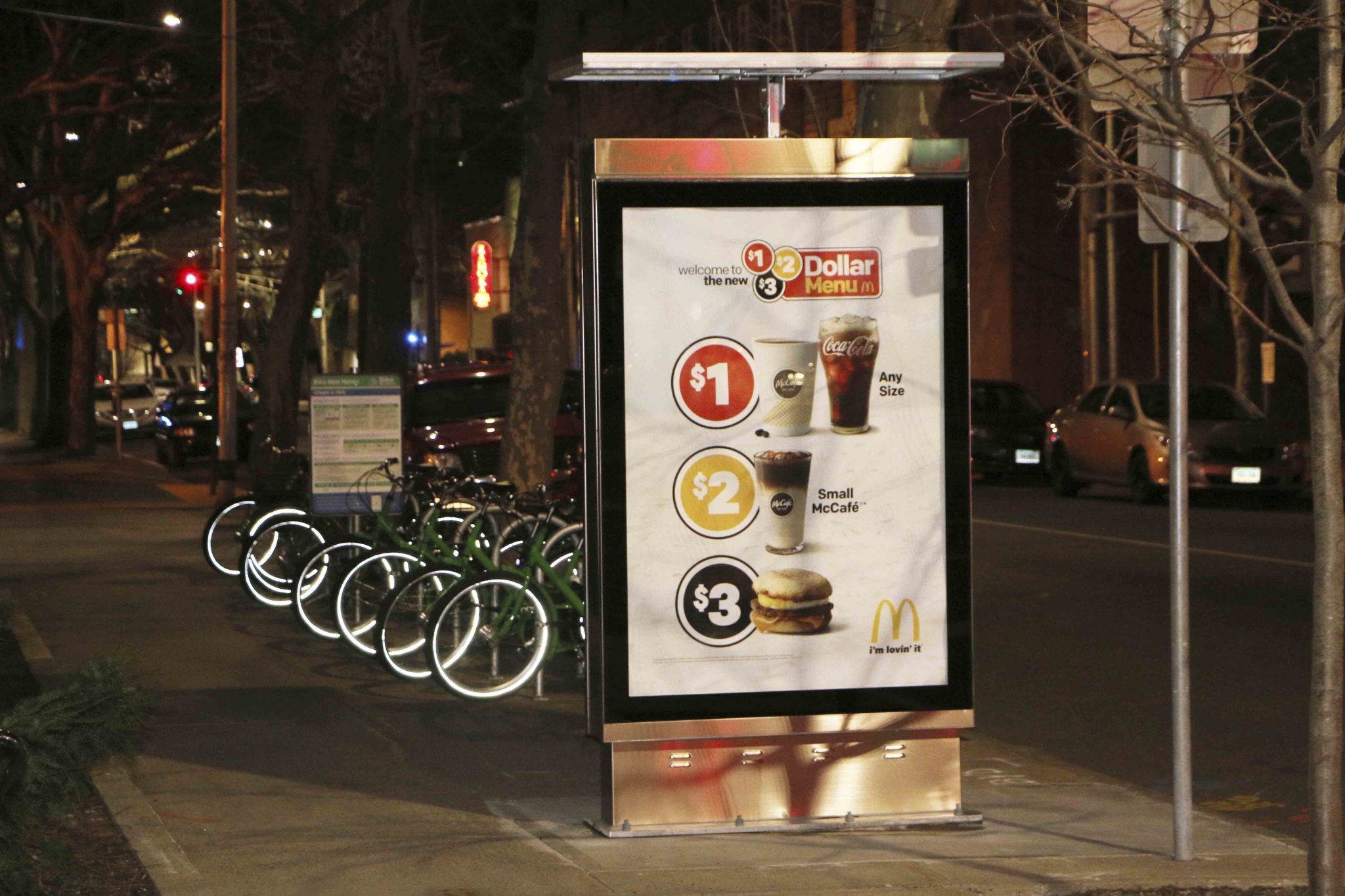
With its new bike-share program, New Haven has tried to implement a healthy and affordable form of transit. But residents are complaining about advertisements at the bike stations for McMuffins and Coca-Cola.
Large 4-by-8-foot McDonald’s signboards have popped up around the Elm City at bike stations run by Bike New Haven, the city’s new bike-share program, launched on Feb. 20. A rotating cast of vendors — including McDonald’s — are sponsoring the program, allowing it to operate at no cost to the city. Yet many New Haven residents have voiced complaints about the size of the McDonald’s advertisements and pointed out the irony of promoting fast food at bike stations. While the city is receptive to these complaints, sponsors and advertisers are necessary for the program to exist, officials said.
City Plan Commission chair Ed Mattison LAW ’68 said he received roughly half a dozen calls from residents expressing their concerns about the advertisements.
“No one who called me had anything to say about the bicycle program at all. The only thing they talked about were their concerns for the McDonald’s signs,” he said. “I don’t even know why people called me, but they did.”
Though some residents have complained about the content of the advertisements, many of the callers Mattison spoke with were primarily concerned with the unappealing aesthetic of the signs. He added that a few callers were worried that the signs would make the streets of New Haven more dangerous because people could hide behind them and attack passersby.
Gary Duarte, a New Haven resident, said he does not care at all about the signs or their content.
“The signs aren’t advertising Big Macs, they’re advertising coffee and breakfast sandwiches,” he said. “People make a choice to eat healthy or not, and I don’t think these signs will influence people’s eating.”
He added that he thinks the advertisements are beneficial to the city since they help make the bike-share program affordable.
In May, the city’s Board of Alders authorized a contract for New Haven Smart Mobility to operate the program. The contract included plans to raise money through rental fees, memberships and advertising, making the bicycles available at no cost to the city. As a result, the cost for riders is “mind-blowingly affordable,” according to Doug Hausladen ’04, New Haven’s director of transportation, traffic and parking.
Sponsorships also allow the program to provide discounted membership for low-income and senior members of the community. With Community Pass, a membership option for qualifying low-income users that costs just $15 a year, members get an unlimited number of 45-minute rides.
“The city of New Haven is in a space where, from a transportation perspective, we’re under the mercy of the state,” Hausladen said. “Like everything in our system, the advertisements are a trade-off, but the city is in a very tight financial strait.”
Hausladen added that the state transportation fund “is going bankrupt” in two years, so Connecticut is seeking ways to cut back on transit costs.
Currently, there are 100 bikes at 10 different locations throughout the city. Eventually, the program will expand to include 300 bikes at 30 stations.
Caroline Moore | caroline.moore@yale.edu







